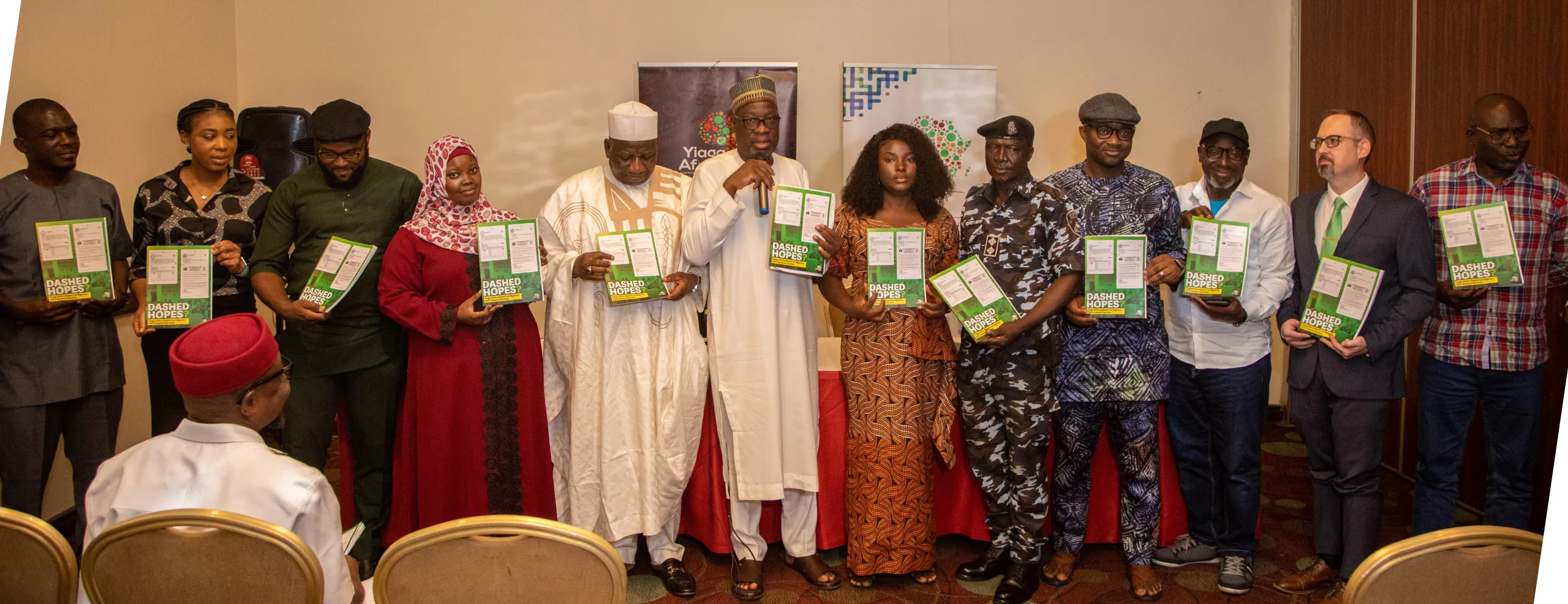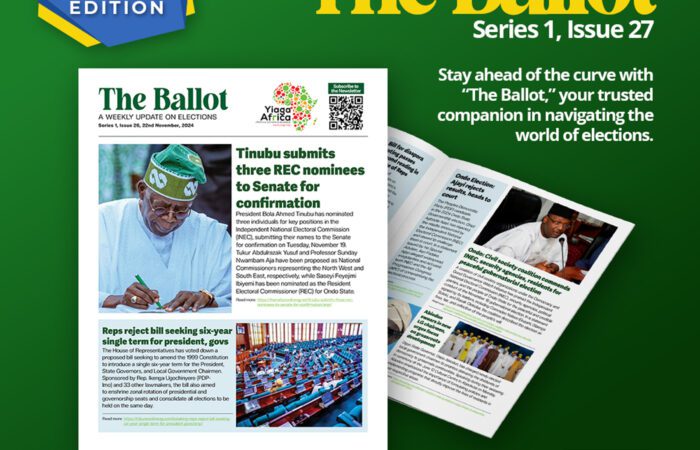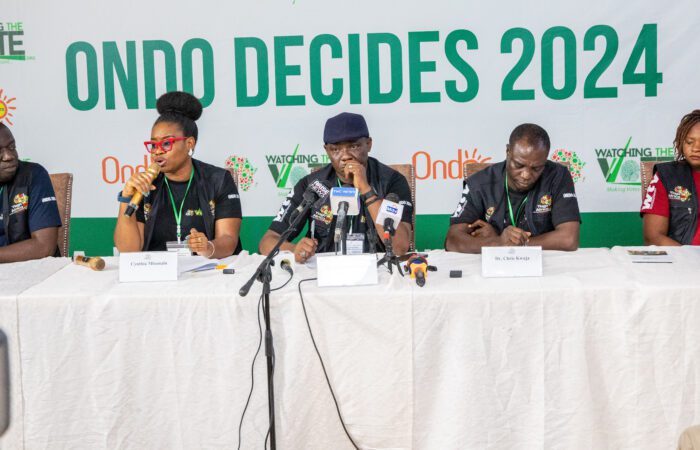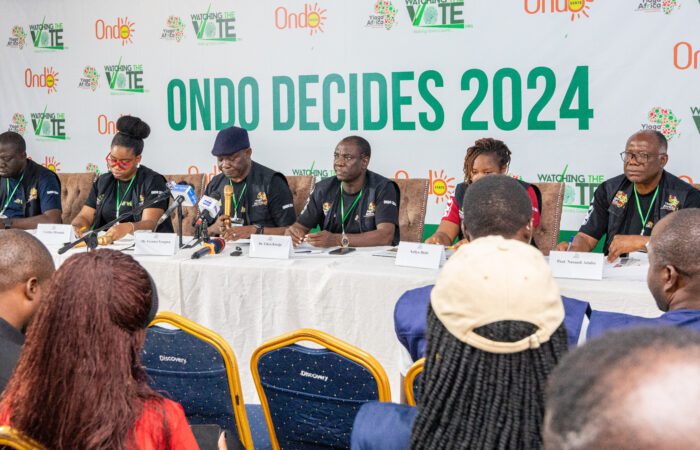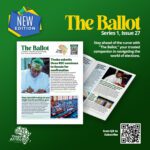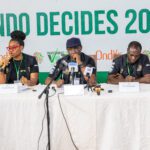On July 28, Yiaga Africa presented its report of observation of the 2023 general elections titled, “Dashed Hopes?” at a press conference attended by election stakeholders including members of political parties, civil society organisations, donor partners, security agencies and the media.
The comprehensive 90-page, four-part report detailed Yiaga Africa’s election engagement strategy which saw the leading civil society organisation deploy the largest observer mission for the 2023 elections with 6,377 citizen observers, including 822 long-term observers in the pre-election phase from November 2022 to February 2023. It also detailed the Process and Results Vote for Transparency (PRVT) methodology (formerly known as PVT- Parallel Vote Tabulation) which was employed in 774 local government areas for the February 25th presidential election and in three states during the March 18th governorship election.
It also examined five major issues that shaped the elections, including the Electoral Act 2022, introduction of electoral technology, naira redesign policy, voter suppression and violence.
While presenting the report, the Board Chair, Yiaga Africa, Dr Hussaini Abdu, described the 2023 general elections as one of the most meticulously planned since 1999 based on the Independent National Electoral Commission (INEC)’s four-year strategic plan and a detailed Election Project plan ahead of the election including a new Electoral Act enacted one year in advance, early release of election funds to INEC and empowerment of the Commission to deploy election technology (Bimodal Voter Accreditation System, BVAS, and INEC Election Results Viewing Portal, iReV) including introduction of electronic transmission of results.

“INEC’s extensive preparations and public communications set the bar high for the election. Unfortunately, the Commission did not meet these expectations. INEC and other electoral governance actors did not meet public expectations for the 2023 elections despite the confidence-building and voter mobilisation initiatives that preceded the elections,” he said.
He added that the judiciary delivered judgments that undermined provisions of the 2022 Electoral Act and rolled back reforms seeking to improve the candidate nomination process in political parties.
“The elections represented a missed opportunity, as incremental electoral reforms to enhance electoral integrity failed to deliver desired outcomes,” he concluded.
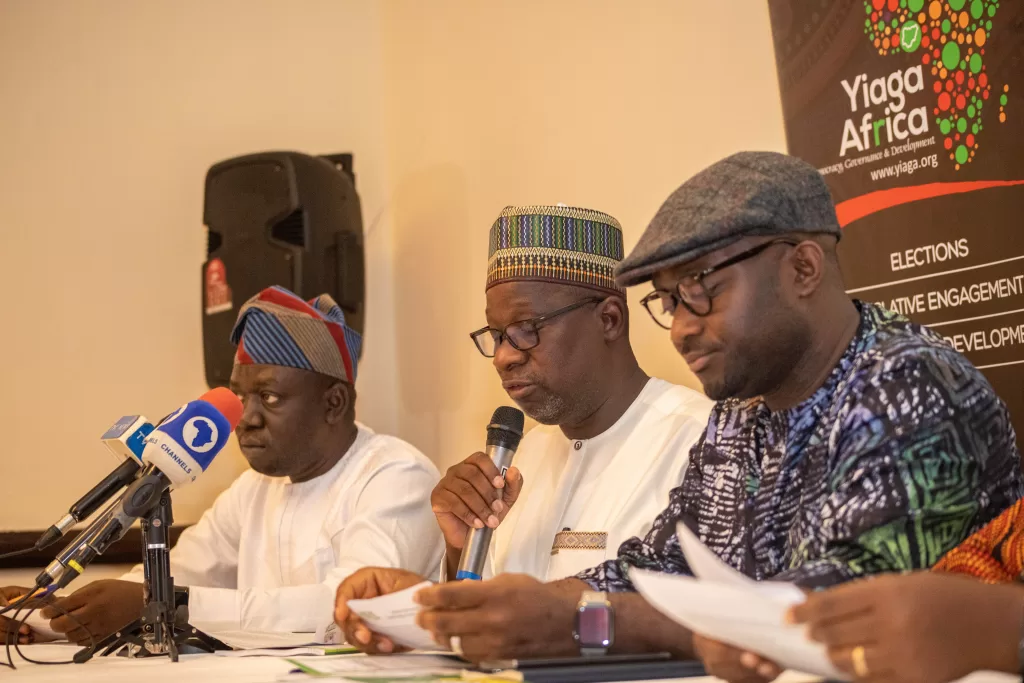

This was detailed in a part of the report which assessed the compliance of the elections with electoral integrity standards, with emphasis on its transparency, inclusiveness and fairness.
In order to improve Nigeria’s electoral process, the report made extensive recommendations for legislative, administrative and electoral policy reforms. These reforms include an independent review of the elections, the prosecution of electoral offenders, the unbundling of INEC, an audit of the voter register, and reviewing the requirement for voter identification.
“Nigeria needs legislative, administrative, and policy action to enhance the integrity of elections, restore public trust, and guard against ephemeral enthusiasm in the electoral process,” the report indicated.
Download the statement on the presentation of the report here

